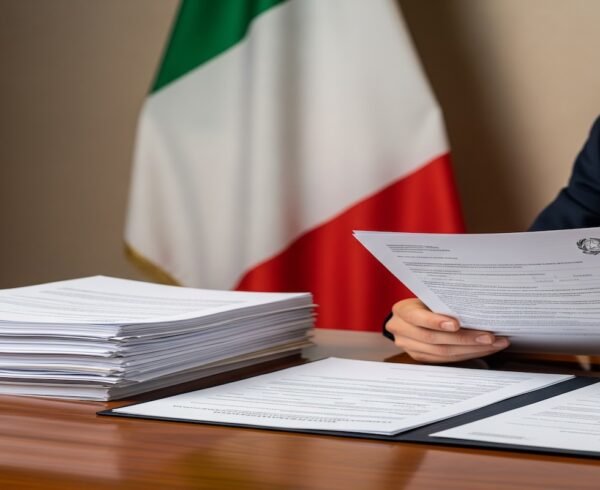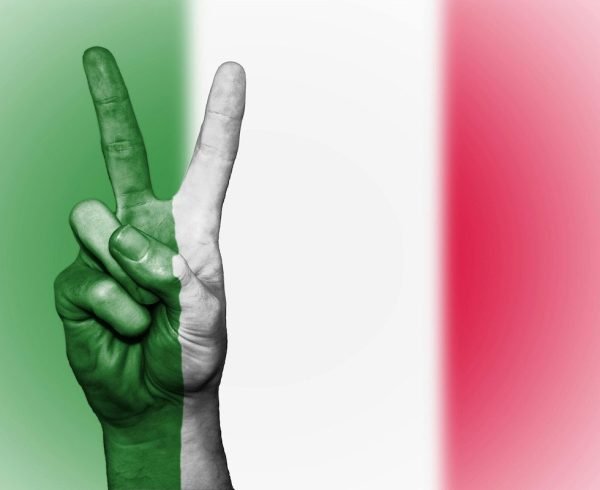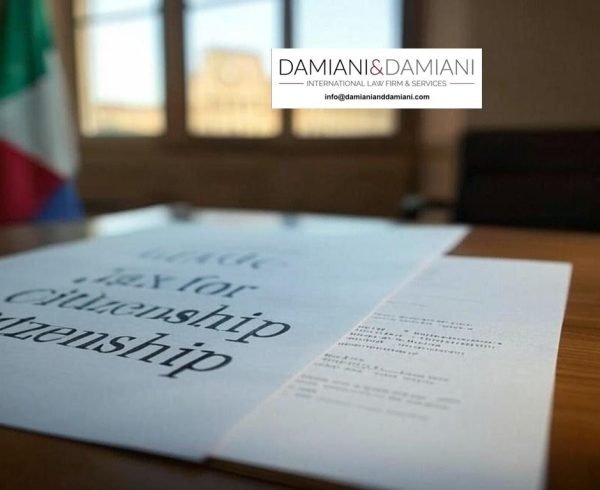The increase in immigration in Italy has led to an increase in the births of children of immigrants in recent years. Many of them, once they come of age, can obtain the citizenship of the country where they grew up and were educated. The acquisition of Italian citizenship, therefore, represents the final moment in the path of integration of these young people who are part of our society.
The requirements of the citizenship law
The law states the possibility of obtaining Italian citizenship for the children of immigrants born in Italy who have resided there legally and without interruption until the age of legal majority (art. 4, par. 2, law 91/1992). The basic requirements to apply for Italian citizenship are:
- being born in Italy;
- having resided there legally and continuously until the age of 18;
- having attended school in Italy;
- applying before the age of 19
The importance of regular presence in Italy
It is necessary to prove to have always held a residence permit since the time of birth, with subsequent registration at the municipal registry office. Before the age of 19, a declaration of intent to obtain citizenship must be submitted to the municipality of residence, along with the relevant documentation.
If a child is born in italy to foreign parents. Right to citizenship and delays in registration
The Court of Cassation ruled that delays in the registration of a minor’s civil registration do not affect his or her right to citizenship. In fact, the Court established the principle of residence relevant to the recognition of citizenship in favour of the applicant born in Italy from foreigners, which is based on the criterion of effectiveness. That is, the principle whereby the applicant must have been effectively resident in Italy since birth is prevalent, regardless of the regular registration of the parents’ residence permit at the time of birth. In short, it is sufficient to prove the actual presence in Italy with other documents (vaccinations, medical records, etc.). Registration must in any case be traceable back to the birth, regularly registered in Italy. Even brief interruptions in the residence permit may be rectified by proof of presence in the territory (school or health certificates).
As does a child born in italy get citizenship? The assistance of an expert when applying for citizenship
To submit the application correctly and avoid any risks of rejection, it is advisable to contact a lawyer with expertise in immigration law and procedures for the recognition of Italian citizenship. Damiani&Damiani law firm offers specific assistance in applying for Italian citizenship for children of immigrants born in Italy.
Required documentation for does a baby born in italy for get citizenship
To obtain Italian nationality at the age of majority, Italy-born children of immigrants must present these basic documents:
- Birth certificate: this is used to prove that they were actually born on Italian territory. The act must be requested from the Comune (municipality) where the birth took place;
- Residence permits: copies of all residence permits of the parents in which the child is regularly registered, demonstrating the continuity of legal presence in Italy;
- Certificate of residency: must cover the entire period of stay in Italy until the child reaches the age of 18. It must be requested from the registry office of the local authority;
- Valid identity document: valid identity card or passport certifying the applicant’s full personal details;
- Tax code: issued by the Revenue Office at the time of birth;
- Declaration of intention: must be submitted to the Comune before the 19th birthday. It expresses the formal request to obtain Italian nationality;
- Revenue stamp: necessary to finalise the application. It currently costs €16.
Gathering all this documentation in good time, as well as checking its completeness and validity, is essential to start the application process.
Does Italy give citizenship by birth? Yes, here you are how to rectify any irregularities
It may be the case that during a person’s childhood and adolescence, certain bureaucratic irregularities occur that may jeopardise the recognition of citizenship – e.g. delayed registration at the municipal registry office or short breaks in the parents’ residence permits. It is worth seeing what they are and how to rectify them:
- Late registration at the civil registry office: it is sufficient to prove by means of other documents (medical records, vaccinations, etc.) that the person was actually in Italy before registering at the registry office;
- Interruptions in the residency permit: these must be rectified by presenting school attendance or other certificates attesting to the presence on Italian territory during the period covered by the residency permit;
- Lack of registration of the minor child on the parents’ permit: this may be supplemented with registry office certificates proving the parents’ cohabitation with the child in Italy.
An adequate supplementary documentation, therefore, can make it possible to prove continued presence on Italian territory despite some bureaucratic loopholes, without affecting the outcome of the citizenship application. However, it is advisable to consult an experienced lawyer to be guided on the most appropriate path.
People also ask:
At what age can I apply for Italian citizenship if I am the child of immigrants?
If you were born in Italy from immigrant parents, you can apply for Italian citizenship between the age of 18 and 19. The law stipulates that you must submit your declaration of intent to the municipality of residence before the age of 19. In any case, the right to apply for and obtain citizenship cannot be affected and is valid even after the age of 19.
What happens if I was not immediately registered at the registry office by my parents?
Even if you were not immediately registered, you can still obtain Italian citizenship. According to case law, delays or omissions in registration as a child do not affect your right to citizenship if you can prove your continuous presence in Italy with other documents (health records, vaccination certificates, school certificates, etc.).
Do I have to contact a lawyer to apply for Italian citizenship?
It is not mandatory to consult a lawyer, but it is extremely advisable in order to receive the right assistance in the procedure and to present all the necessary documentation correctly, thus avoiding errors that could result in the rejection of your application. A lawyer experienced in immigration law will be able to guide you in the most appropriate procedure for your specific case.
What are the requirements for obtaining Italian citizenship for children born to foreign parents in Italy?
Children born in Italy to foreign parents can apply for Italian citizenship if they meet the following requirements:
- They were born on Italian soil.
- They have legally and continuously resided in Italy until the age of 18.
- They submit a declaration of intent to acquire citizenship within one year after turning 18 (before their 19th birthday).
It is essential that their residence in Italy has been uninterrupted and legally documented.
What does “legal and uninterrupted residence” mean?
“Legal and uninterrupted residence” means that the child must have been continuously registered as a resident in an Italian municipality from birth until turning 18.
This requires:
- Official registration in the municipal registry (Anagrafe).
- Valid residence permits for parents, ensuring the child was legally present in Italy.
- No significant gaps in residency, though short absences may be justified with school or medical records proving the child’s continued presence in Italy.
What documents are needed to apply for Italian citizenship?
Applicants must submit the following documents:
- Birth certificate issued by the Italian municipality where the child was born.
- Residence certificate, proving continuous residency from birth until the age of 18.
- Copies of parents’ residence permits, proving the child’s legal status in Italy.
- Valid identification document (e.g., passport or Italian ID card).
- Tax identification code (Codice Fiscale) issued by the Italian Revenue Agency.
- Declaration of intent to acquire citizenship, filed with the municipality before the 19th birthday.
- Revenue stamp (Marca da bollo), currently valued at €16, required for the application.
What happens if there was a delay in registering the child’s birth?
If a child’s birth was not immediately registered in Italy, it does not automatically prevent them from acquiring Italian citizenship.
The Italian Supreme Court has ruled that a delayed registration does not invalidate the child’s right to citizenship, as long as they can prove continuous residence through other documents, such as:
- Medical records showing vaccinations and medical visits in Italy.
- School certificates proving the child attended Italian educational institutions.
Can someone apply for Italian citizenship after turning 19?
If the declaration of intent is not submitted before turning 19, the automatic right to citizenship is lost.
However, the person may still apply for citizenship through naturalization, which requires:
- At least 10 years of legal residence in Italy.
- Proof of financial stability and income requirements.
- Demonstration of cultural and social integration, including Italian language proficiency.
Is legal assistance necessary for submitting a citizenship application?
Although legal assistance is not mandatory, it is highly recommended.
An immigration lawyer can help:
- Ensure the application is complete and free of errors.
- Assist in gathering the necessary documents.
- Represent the applicant in case of delays or issues with the authorities.
Mistakes or missing documents can lead to application rejections or delays, so expert guidance can significantly improve the chances of success.

















